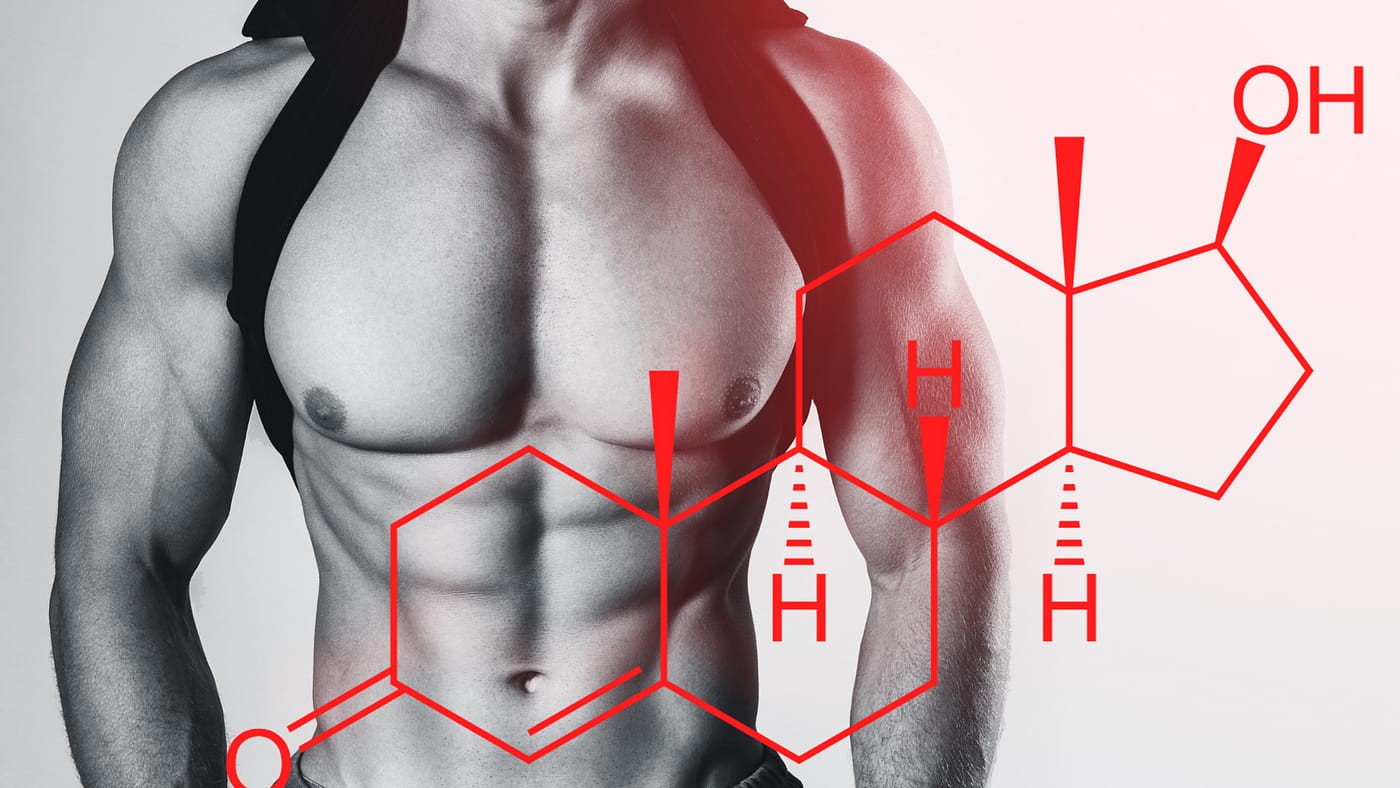
Testosterone, often referred to as the “male hormone,” is an essential component of human anatomy. Produced primarily in the testicles, but also in small amounts in women’s ovaries, this hormone plays a crucial role in various aspects of our physical and mental well-being. While it is commonly associated with characteristics like strength, muscle development, and libido, there is much more to testosterone than meets the eye.
In this article, we will explore 14 captivating facts about testosterone that will delve deeper into its functions, effects, and importance in our bodies. From its impact on mood and cognition to its role in reproductive health, we’ll uncover fascinating insights that will help us better understand this remarkable hormone and its significance in both men and women.
Key Takeaways:
- Testosterone is essential for muscle growth, bone health, and mood. It helps build strong muscles, keeps bones healthy, and affects how we feel.
- Lifestyle and age can affect testosterone levels. Eating well, staying active, and getting enough sleep can help maintain healthy testosterone levels as we get older.
Testosterone is the primary male sex hormone.
Testosterone is a hormone that plays a crucial role in the development and maintenance of male reproductive tissues and secondary sexual characteristics. It is produced primarily in the testicles and is also present, although in smaller amounts, in females.
Testosterone influences muscle mass and strength.
This powerful hormone is responsible for promoting the growth and development of muscle tissues. It enhances protein synthesis, which leads to increased muscle mass and strength gains.
Testosterone is vital for bone health.
Testosterone helps stimulate bone mineralization and maintains bone density, reducing the risk of osteoporosis and fractures in both men and women.
Testosterone affects mood and cognitive function.
Testosterone plays a role in influencing mood, cognitive function, and overall mental well-being. Low levels of testosterone have been associated with fatigue, irritability, and difficulty concentrating.
Testosterone contributes to the growth of facial and body hair.
During puberty, testosterone stimulates the growth of facial and body hair, deepens the voice, and influences the development of male pattern baldness.
Testosterone plays a part in sexual function and libido.
Testosterone is crucial for maintaining healthy sexual function in both men and women. It helps regulate libido, erectile function, and sperm production.
Testosterone levels decline with age.
As men age, testosterone levels gradually decline. This natural decline, known as andropause, can result in symptoms such as decreased energy, reduced muscle mass, and reduced sexual drive.
Testosterone can be affected by lifestyle factors.
Various lifestyle factors, including stress, obesity, lack of physical activity, and poor sleep, can negatively impact testosterone levels. Adopting a healthy lifestyle can help maintain optimal testosterone levels.
Testosterone therapy is available for those with low levels.
In cases where individuals have abnormally low testosterone levels, testosterone replacement therapy may be prescribed. This therapy can help alleviate symptoms associated with low testosterone.
Testosterone contributes to red blood cell production.
Testosterone stimulates the production of red blood cells in the bone marrow. This helps maintain adequate oxygenation of tissues and supports overall cardiovascular health.
Testosterone affects metabolism and body fat distribution.
Testosterone plays a role in regulating metabolism and body fat distribution. Low levels of testosterone have been associated with increased body fat and a higher risk of obesity.
Testosterone levels fluctuate throughout the day.
Testosterone levels are not consistent throughout the day. They typically peak in the morning and gradually decline as the day progresses.
Testosterone helps promote a sense of confidence and assertiveness.
Higher levels of testosterone have been linked to increased feelings of confidence, assertiveness, and a willingness to take risks.
Testosterone plays a role in the regulation of emotions.
Testosterone influences emotional well-being, with optimal levels associated with improved mood, self-esteem, and overall emotional stability.
In conclusion,
The 14 captivating facts about testosterone shed light on its crucial role in various aspects of human health and well-being. From its influence on muscle growth and bone health to its impact on mood, cognition, and sexual function, testosterone truly governs many important physiological processes. Understanding and maintaining optimal testosterone levels can contribute to overall health and vitality.
Conclusion
After exploring these 14 captivating facts about testosterone, it is evident that this hormone plays a crucial role in various aspects of human health. From its impact on muscle mass and bone density to its influence on mood and libido, testosterone is not just a male hormone but an essential component of both male and female physiology.Understanding the functions and effects of testosterone is important for individuals who may be experiencing symptoms of hormonal imbalance or seeking ways to optimize their health and well-being. Whether it’s through lifestyle changes, natural supplements, or medical interventions, there are options available to help maintain healthy testosterone levels.Remember, testosterone levels naturally decline with age, but by adopting a healthy lifestyle, managing stress, getting adequate sleep, and seeking professional guidance when needed, it is possible to support optimal hormone balance.With a deeper understanding of testosterone and its impact on the body, individuals can take proactive steps towards achieving and maintaining overall wellness.
FAQs
1. What is testosterone?
Testosterone is a hormone primarily found in males, but females also have small amounts. It plays a crucial role in the development of male sex organs, muscle growth, bone density, and overall well-being.
2. What are the symptoms of low testosterone?
Common symptoms of low testosterone include reduced sex drive, fatigue, decreased muscle mass, mood changes, and difficulty concentrating.
3. Can testosterone levels be boosted naturally?
Yes, certain lifestyle changes can help optimize testosterone levels naturally. These include maintaining a healthy weight, engaging in regular exercise, getting enough sleep, managing stress levels, and ensuring adequate vitamin D and zinc intake.
4. Can women have high levels of testosterone?
Yes, women can have high levels of testosterone, although it is usually significantly lower compared to men. High levels of testosterone in women can cause symptoms such as acne, facial hair growth, and irregular menstrual cycles.
5. Can testosterone replacement therapy help?
Testosterone replacement therapy (TRT) is a medical intervention that can be effective in increasing testosterone levels in individuals with clinically low levels. It should only be pursued under the guidance of a qualified healthcare professional.
6. Are there any risks associated with testosterone therapy?
Like any medical intervention, testosterone therapy carries potential risks and side effects. These can include fluid retention, acne, sleep apnea, increased risk of blood clots, and prostate enlargement. It is important to discuss the risks and benefits with a healthcare provider.
7. Can testosterone levels affect fertility?
Yes, testosterone levels can impact fertility in both men and women. Low testosterone levels in men can contribute to reduced sperm production, while high levels of testosterone in women can disrupt ovulation and menstrual cycles.
8. Can lifestyle factors impact testosterone levels?
Absolutely! Lifestyle factors such as diet, exercise, sleep, stress management, and exposure to environmental toxins can all influence testosterone levels. Adopting a healthy lifestyle can help promote optimal hormone balance.
Testosterone's power is undeniable, but there's more to uncover! For a lighthearted look at a legendary figure, check out some lesser-known Chuck Norris facts. Curious about the cells responsible for testosterone production? Explore the wonders of Leydig cells. And don't forget luteinizing hormone, the master regulator behind it all. Keep learning and satisfy your curiosity with these captivating reads!
Was this page helpful?
Our commitment to delivering trustworthy and engaging content is at the heart of what we do. Each fact on our site is contributed by real users like you, bringing a wealth of diverse insights and information. To ensure the highest standards of accuracy and reliability, our dedicated editors meticulously review each submission. This process guarantees that the facts we share are not only fascinating but also credible. Trust in our commitment to quality and authenticity as you explore and learn with us.


